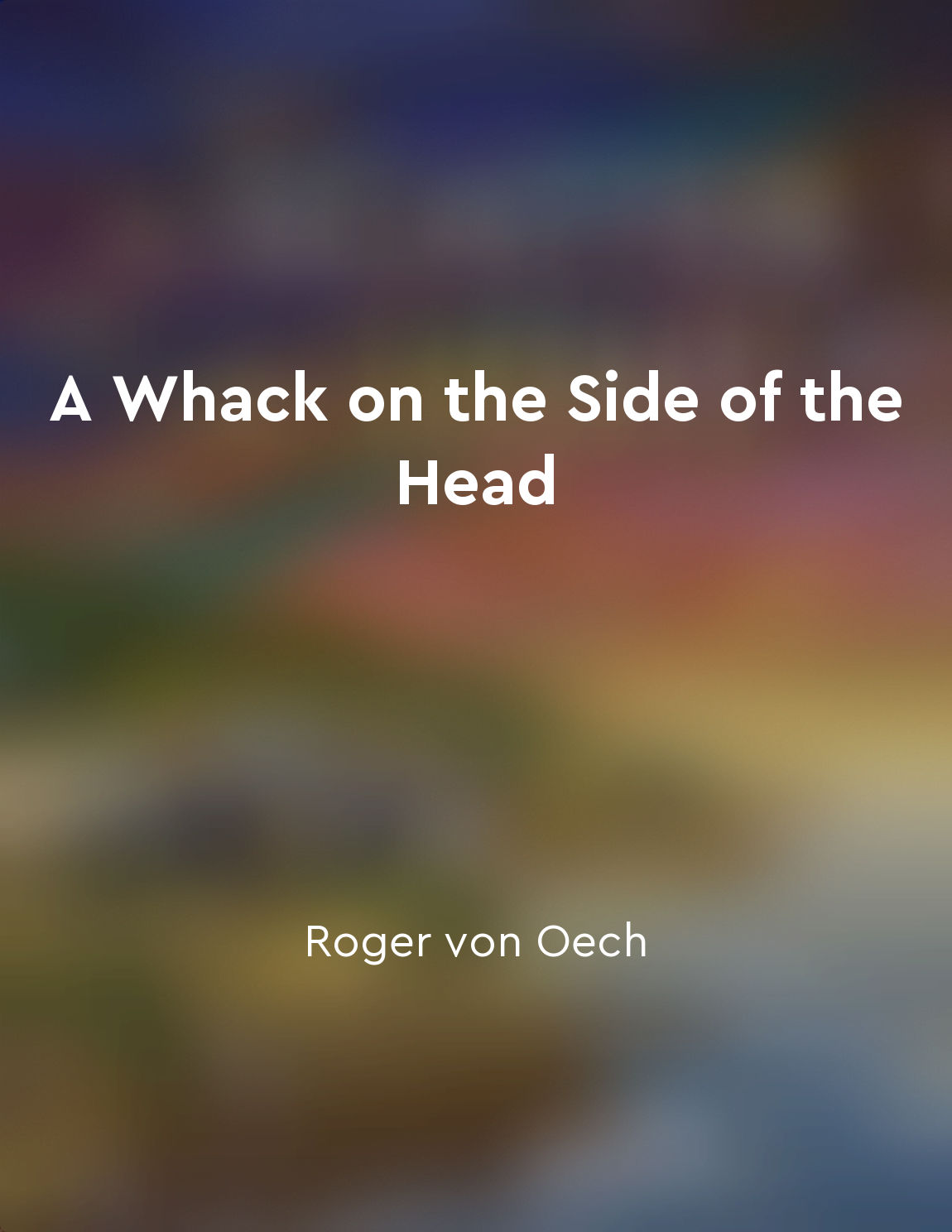Intuitions without concepts are blind from "summary" of Critique of Pure Reason by Immanuel Kant
Intuitions without concepts are blind. Without concepts, intuitions lack the ability to be understood or make sense of the world around us. They are merely raw sensory data that do not have any significance or meaning on their own. In order to truly comprehend our perceptions, we must apply concepts to them. Concepts are what allow us to organize and interpret our intuitions, giving them structure and coherence. Concepts are necessary for our understanding of the world, as they provide us with the framework to categorize and make sense of our experiences. They are the tools that enable us to connect different intuitions and form coherent thoughts. Without concepts, our intuitions would be disjointed and chaotic, lacking any logical order or connection. Through the application of concepts to our intuitions, we are able to go beyond mere sensory impressions and gain true knowledge and understanding. Concepts allow us to identify patterns, establish relationships, and draw conclusions from our intuitions. They enable us to move beyond the surface level and delve deeper into the underlying structure of reality. By combining intuitions with concepts, we are able to form judgments and reason about the world around us. Concepts provide us with the ability to think abstractly and make inferences based on our intuitions. They allow us to engage in rational thought and draw meaningful conclusions from our sensory experiences.- Intuitions without concepts are like a puzzle without a key - they lack the guidance and structure needed to form a coherent picture. Concepts serve as the key that unlocks the meaning and significance of our intuitions, enabling us to navigate the complexities of the world and make sense of our experiences. Only through the synthesis of intuitions and concepts can we truly gain insight and understanding into the nature of reality.
Similar Posts
Let go of judgment and embrace acceptance of self and others
In the journey of self-discovery and growth, it is essential to release the tendency to judge ourselves and others. This act of...
Ideas of reason are not attainable
The concept that ideas of reason are not attainable is central to Kant's philosophical framework. According to Kant, reason pla...
Begin with clear and distinct ideas
At the very beginning of my philosophical journey, I made a conscious decision to cast aside all of my previously held beliefs....

Trust your intuition
When we talk about intuition, we're talking about knowing without knowing how we know. It's a gut feeling, a hunch, a sense of ...

Honor the past while embracing the future
The act of honoring the past while simultaneously embracing the future is a delicate balancing act that requires a deep underst...
Our perception of time is shaped by our experiences
Our perception of time is not something fixed or universal. It is deeply influenced by our individual experiences in life. Each...
Use your newfound insights to resolve conflicts and build stronger relationships with others
Now that you have a better understanding of how to analyze and predict people's emotions, thoughts, intentions, and behaviors, ...
Collaboration sparks new perspectives
In the creative process, collaboration can be a powerful catalyst for sparking new perspectives and pushing boundaries. When in...
Automation and abundance require creative thinking
In today's world, automation and abundance have become the norm. With machines taking over repetitive tasks and goods becoming ...
Critique of practical reason sets aside theoretical uncertainties for moral duty
Practical reason, unlike theoretical reason, is concerned with determining how we ought to act in the world. It is not preoccup...

